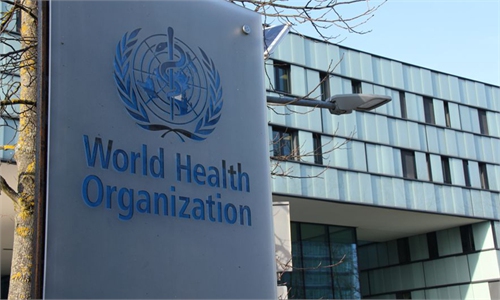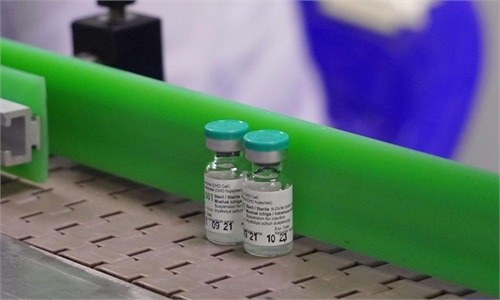WHO urges vaccine against bacteria killing 150,000 babies each year

General view during the opening day of the 61st World Health Organization assembly on May 19, 2008 in Geneva. Photo: AFP
The World Health Organization on Wednesday called for the urgent development of a vaccine against a bacterial infection responsible for nearly 150,000 stillbirths and infant deaths each year.A fresh report by the UN health agency and the London School of Hygiene and Tropical Medicine found that the impact of Group B Streptococcus infection (GBS), which is estimated to live harmlessly in the intestinal tracts of up to a third of all adults, is a far bigger cause of preterm births and disability than previously thought.
The report confirmed a previous devastating finding from 2017 that the bacterium causes almost 100,000 newborn deaths and close to 50,000 stillbirths each year, although it pointed to significant data gaps suggesting the true figures could be higher.
And for the first time it quantified the impact on preterm births, finding that GBS is behind more than half a million early deliveries each year, leading to significant long-term disability.
In light of such staggering numbers, the report authors lamented that more progress had not been made toward developing a vaccine.
"This new research shows that Group B strep is a major and underappreciated threat to newborn survival and wellbeing, bringing devastating impacts for so many families globally," Phillipp Lambach of WHO's immunization department said in a statement.
"WHO joins partners in calling for urgent development of a maternal GBS vaccine, which would have profound benefits in countries worldwide."
Professor Joy Lawn, who heads LSHTM's maternal adolescent, reproductive and child health center, agreed.
"Maternal vaccination could save the lives of hundreds of thousands of babies in the years to come," she said, decrying the lack of progress since the idea of developing a jab against GBS was first raised three decades ago.
On average, 15 percent of pregnant women worldwide carry the GBS bacterium in their vagina. But even though most of these cases show no symptoms, an infected pregnant woman can pass GBS to her fetus via the amniotic fluid, or during birth as the infant passes through the vaginal canal.
AFP



